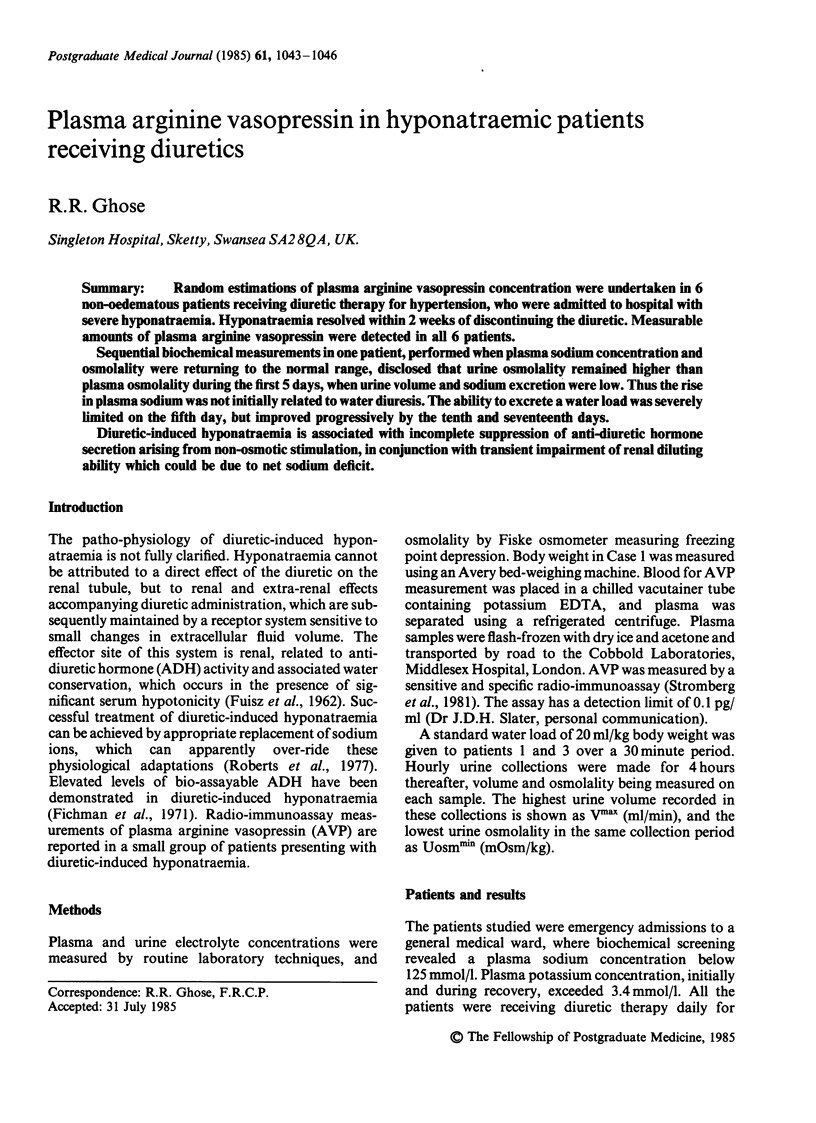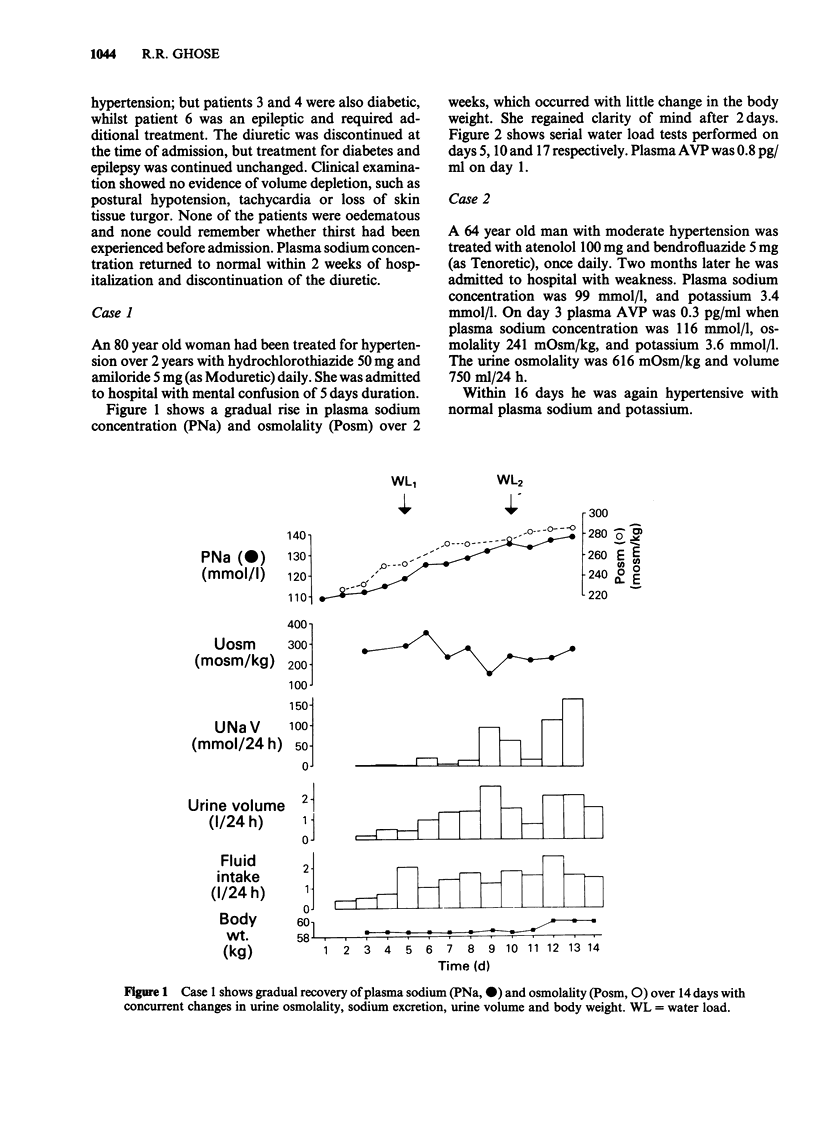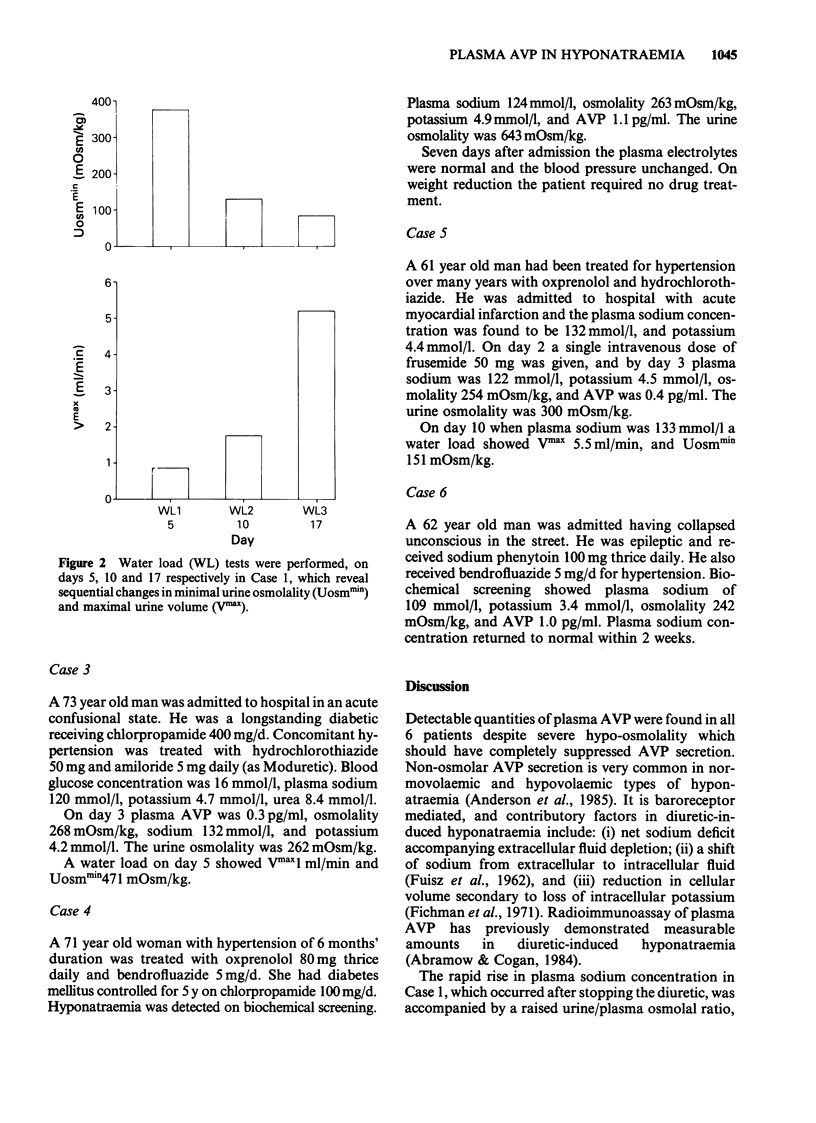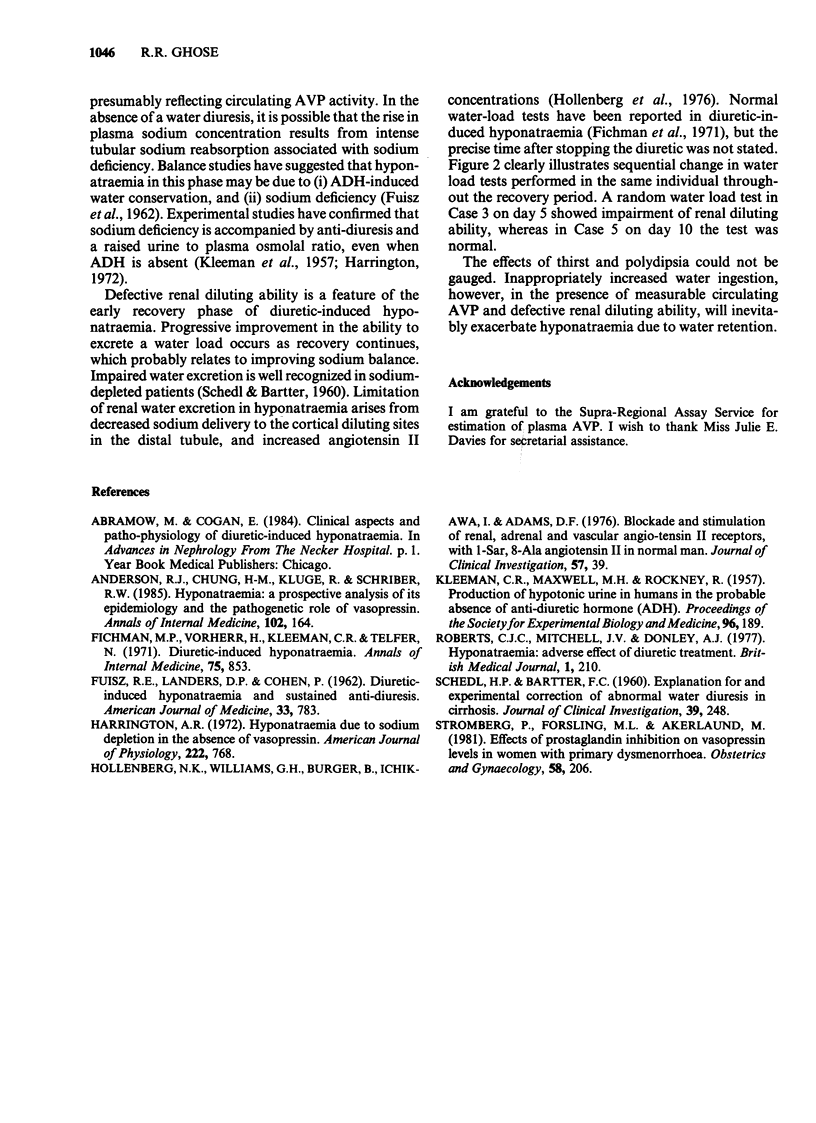Abstract
Random estimations of plasma arginine vasopressin concentration were undertaken in 6 non-oedematous patients receiving diuretic therapy for hypertension, who were admitted to hospital with severe hyponatraemia. Hyponatraemia resolved within 2 weeks of discontinuing the diuretic. Measurable amounts of plasma arginine vasopressin were detected in all 6 patients. Sequential biochemical measurements in one patient, performed when plasma sodium concentration and osmolality were returning to the normal range, disclosed that urine osmolality remained higher than plasma osmolality during the first 5 days, when urine volume and sodium excretion were low. Thus the rise in plasma sodium was not initially related to water diuresis. The ability to excrete a water load was severely limited on the fifth day, but improved progressively by the tenth and seventeenth days. Diuretic-induced hyponatraemia is associated with incomplete suppression of anti-diuretic hormone secretion arising from non-osmotic stimulation, in conjunction with transient impairment of renal diluting ability which could be due to net sodium deficit.
Full text
PDF



Selected References
These references are in PubMed. This may not be the complete list of references from this article.
- Anderson R. J., Chung H. M., Kluge R., Schrier R. W. Hyponatremia: a prospective analysis of its epidemiology and the pathogenetic role of vasopressin. Ann Intern Med. 1985 Feb;102(2):164–168. doi: 10.7326/0003-4819-102-2-164. [DOI] [PubMed] [Google Scholar]
- FUISZ R. E., LAULER D. P., COHEN P. Diuretic-induced hyponatremia and sustained antidiuresis. Am J Med. 1962 Nov;33:783–791. doi: 10.1016/0002-9343(62)90255-3. [DOI] [PubMed] [Google Scholar]
- Fichman M. P., Vorherr H., Kleeman C. R., Telfer N. Diuretic-induced hyponatremia. Ann Intern Med. 1971 Dec;75(6):853–863. doi: 10.7326/0003-4819-75-6-853. [DOI] [PubMed] [Google Scholar]
- Harrington A. R. Hyponatremia due to sodium depletion in the absence of vasopressin. Am J Physiol. 1972 Mar;222(3):768–774. doi: 10.1152/ajplegacy.1972.222.3.768. [DOI] [PubMed] [Google Scholar]
- Hollenberg N. K., Williams G. H., Burger B., Ishikawa I., Adams D. F. Blockade and stimulation of renal, adrenal, and vascular angiotensin II receptors with 1-Sar, 8-Ala angiotensin II in normal man. J Clin Invest. 1976 Jan;57(1):39–46. doi: 10.1172/JCI108266. [DOI] [PMC free article] [PubMed] [Google Scholar]
- Roberts C. J., Mitchell J. V., Donley A. J. Hyponatraemia: adverse effect of diuretic treatment. Br Med J. 1977 Jan 22;1(6055):210–210. doi: 10.1136/bmj.1.6055.210. [DOI] [PMC free article] [PubMed] [Google Scholar]
- SCHEDL H. P., BARTTER F. C. An explanation for and experimental correction of the abnormal water diuresis in cirrhosis. J Clin Invest. 1960 Feb;39:248–261. doi: 10.1172/JCI104035. [DOI] [PMC free article] [PubMed] [Google Scholar]
- Strömberg P., Forsling M. L., Akerlund M. Effects of prostaglandin inhibition on vasopressin levels in women with primary dysmenorrhea. Obstet Gynecol. 1981 Aug;58(2):206–208. [PubMed] [Google Scholar]


